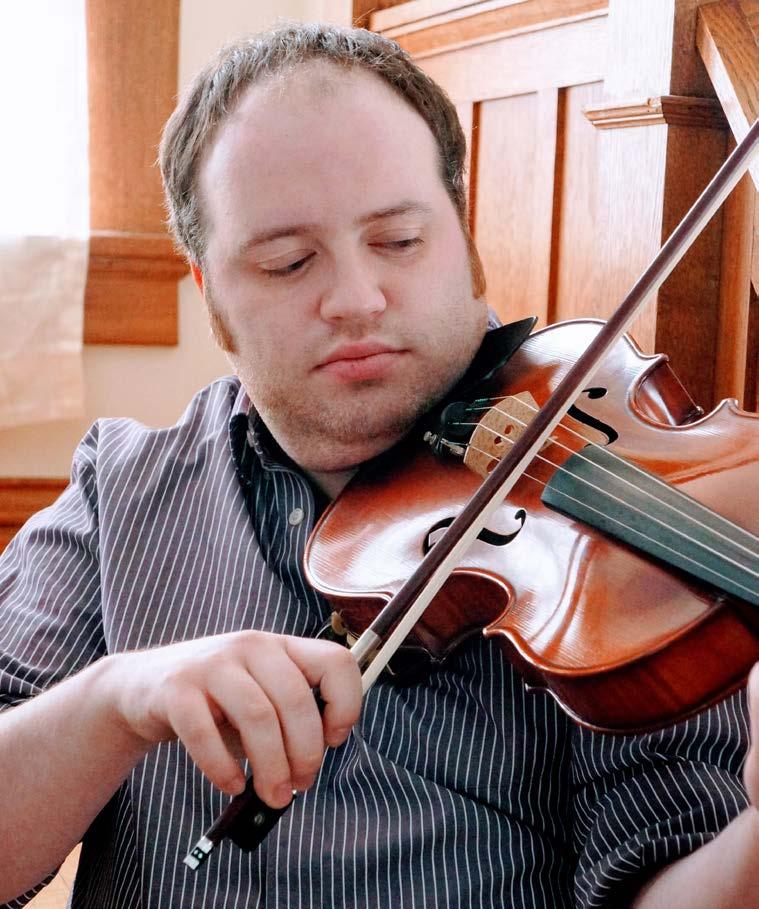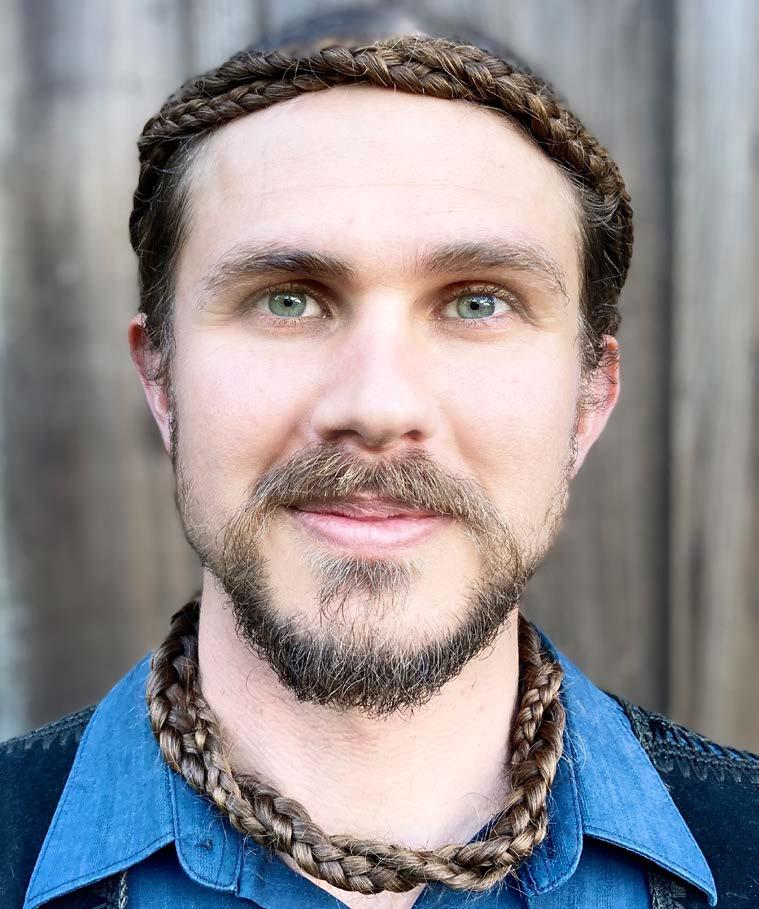
3 minute read
Ethnomusicology Forum: UCSB ABD Graduate Student Series
New series highlights work and research of PhD candidates
To promote a sense of community during remote instruction, and to give graduate students a chance to present their work in a public forum, the UC Santa Barbara Ethnomusicology Program created a new lecture series, the UCSB ABD Graduate Student Series. As part of the UC Santa Barbara Ethnomusicology Forum, the series aims to highlight the work and research of UC Santa Barbara Ethnomusicology students who are nearing the end of their Doctor of Philosophy degree program, and have completed all requirements with the exception of the dissertation (ABD, or “All But Dissertation”). With in-person events prohibited due to the COVID-19 pandemic, the lectures in Winter Quarter were presented via Zoom.

Jason Busniewski
PhD candidate Jason Busniewski kicked-off the series on January 27 with a lecture titled “Bagpiping in the Garhwal Himalayas: Music Theory and Analytical Approaches to a South Asian Tradition.” Busniewski wrote of his talk: “Since the instrument was first introduced to Britain’s Gurkha Regiments in the late nineteenth century, the Scottish Great Highland Bagpipe has been adopted, adapted, and indigenized to become a key part of the soundscape of India’s Garhwal Himalayas. While South Asia’s Hindustani and Karnatak classical musics have been subject to large amounts of close musical analysis and music theoretical study, the region’s popular and ‘folk’ musics, including those of rural Garhwal, have been largely ignored in these respects, in part due to a shift in disciplinary priorities within the field of ethnomusicology.
“Following the work of Michael Tenzer and Gabriel Solis, this talk explores the possibilities of music analytical, computational, and music theoretical approaches to understanding the processes through which Garhwali musicians have indigenized Scottish bagpipes in the context of preexisting musical practices and what such approaches can contribute to the broader ethnomusicology of South Asia’s music traditions.”

Garhwali bagpiper
Jason Busniewski is a PhD candidate at UC Santa Barbara, where his dissertation research investigates the indigenization of the Scottish Great Highland Bagpipe in India’s Garhwal Himalayas. He is also an avid fiddler, performing and teaching traditional music from Ireland and the American Upper Midwest.

Alexander Karvelas
On February 17, PhD candidate Alexander Karvelas presented a lecture titled “Eth(n)ographic Gardening: Preliminary Research Design in a Study of Permaculture Acoustemologies.” Karvelas said of his talk: “This presentation introduces the preliminary stages of a research project on permaculture listening practices. Permaculture is a globalized ecological/agricultural and social design framework that emerged in the late-twentieth century as a synthesis of diverse Indigenous Ecological Knowledges and Euro-Western horticultural techniques. It is described by practitioners as both a scientific and artistic method for maintaining healthy eco-social relationships rooted in principles of reciprocity and sustainability.
“Exploring the implications of permaculture as an artistic method, focus is directed toward the creative acoustic practices (listening and sounding) that permaculturists participate in through the tending of gardens. Synthesizing Steven Feld’s framework of acoustemology (1996, 2017) with environmental humanities discourses on the more than-human (Rose and Van Dooren 2016, Haraway 2017), this presentation sets the theoretical and methodological groundwork for a study of permaculture acoustemologies—permacultural modes of knowing, relating, and tending through sound—in the context of gardening/ land-tending as a more-than-human encounter.”

A site used for the study of permaculture acoustemologies
Alexander Karvelas is a PhD candidate in the Department of Music with an interdisciplinary emphasis in Environment and Society. His research focuses on issues of climate (in) justice and the sounds of ecological disaster and regeneration. He is also a member of the Environmental Justice/Climate Justice Research Hub at the Orfalea Center for Global and International Studies and an ally member of the American Indian and Indigenous Collective at UC Santa Barbara.










